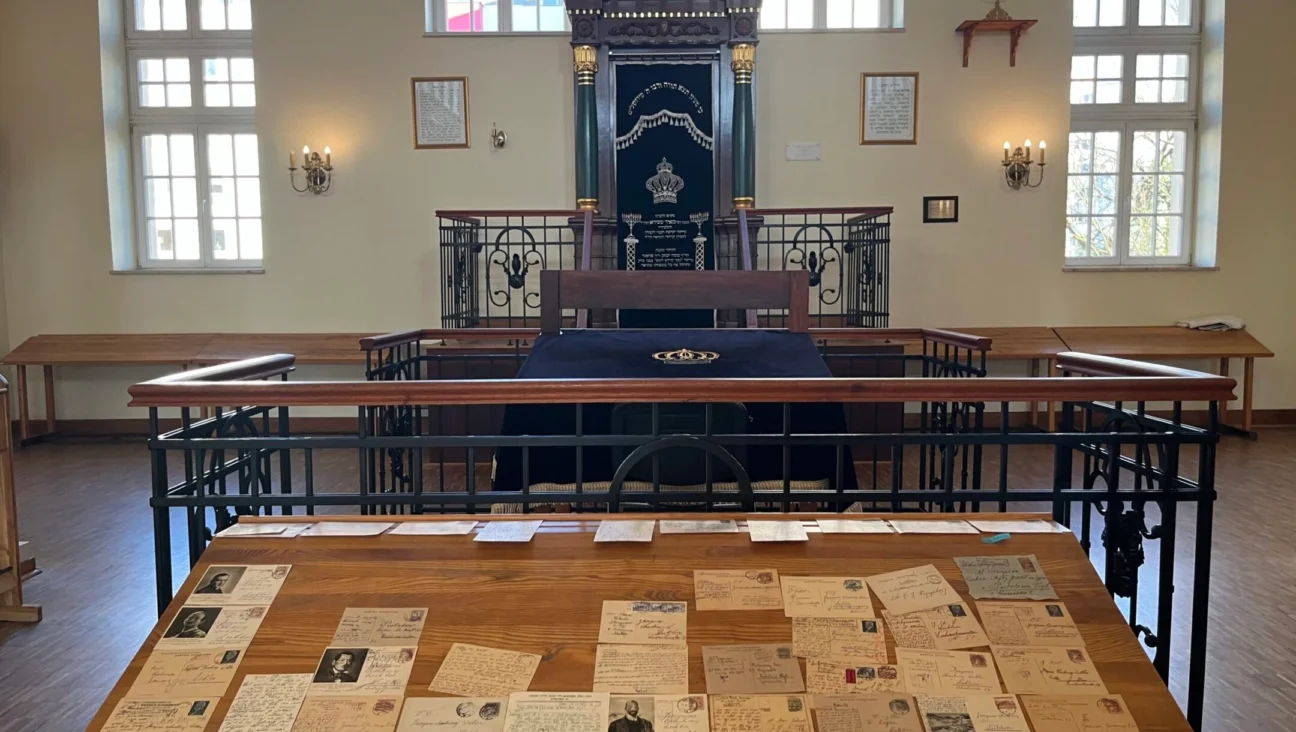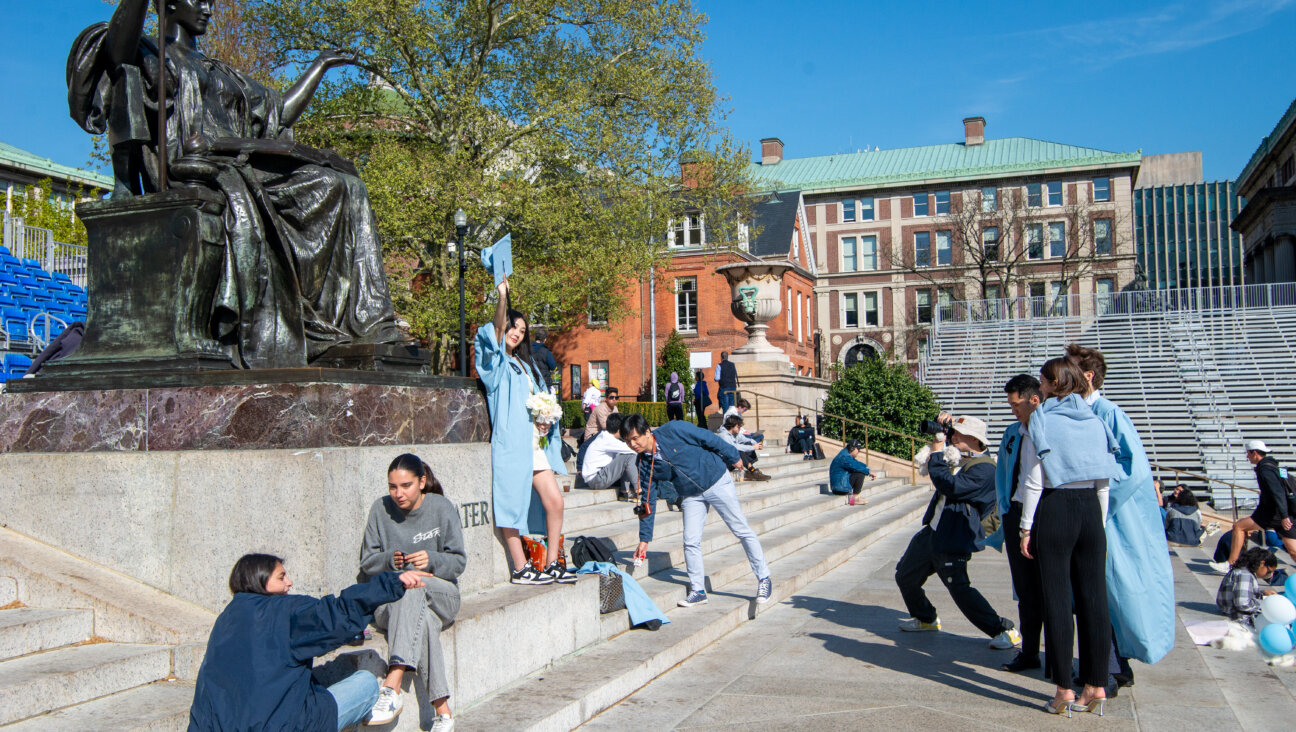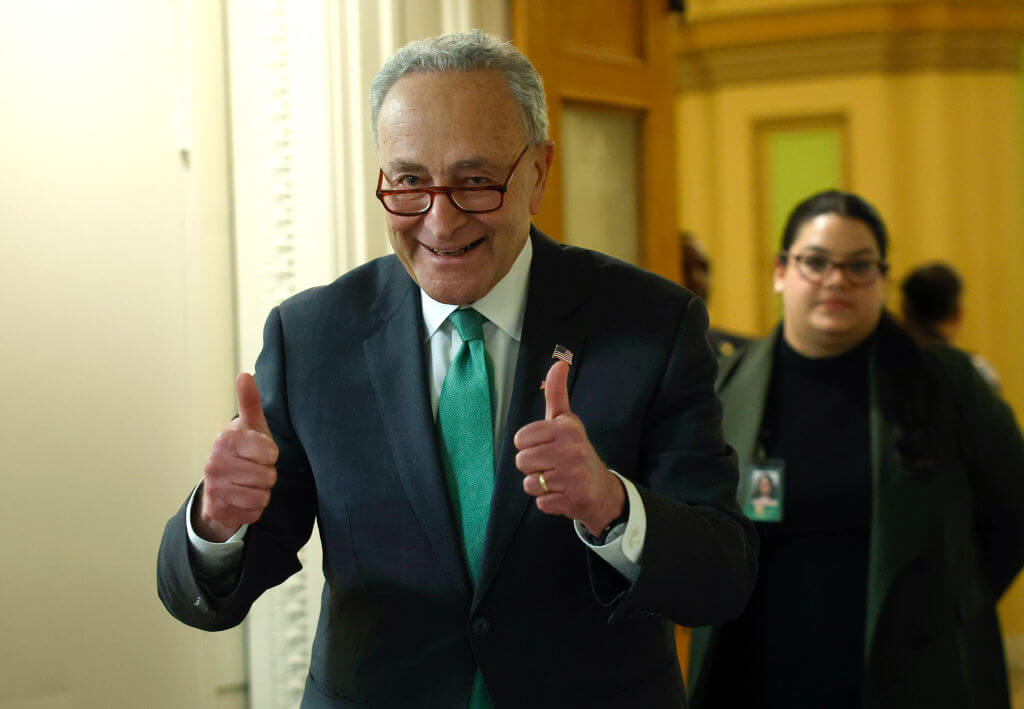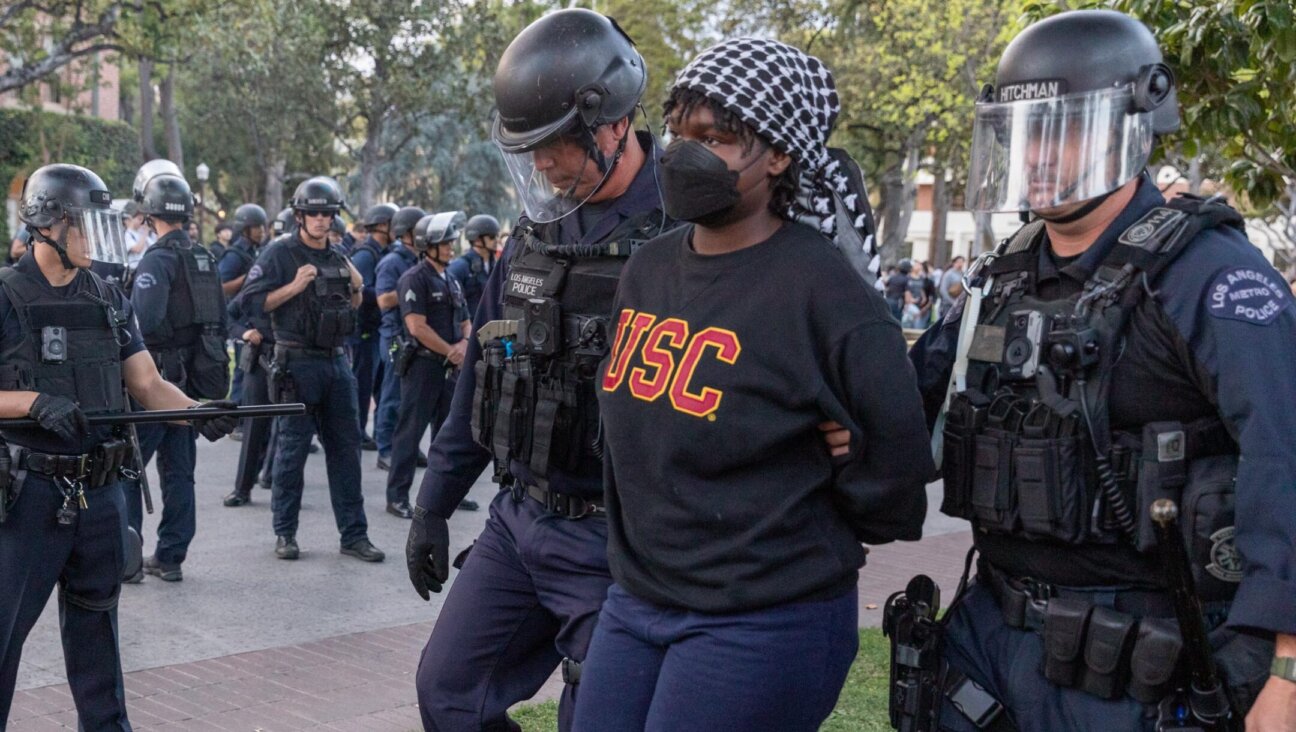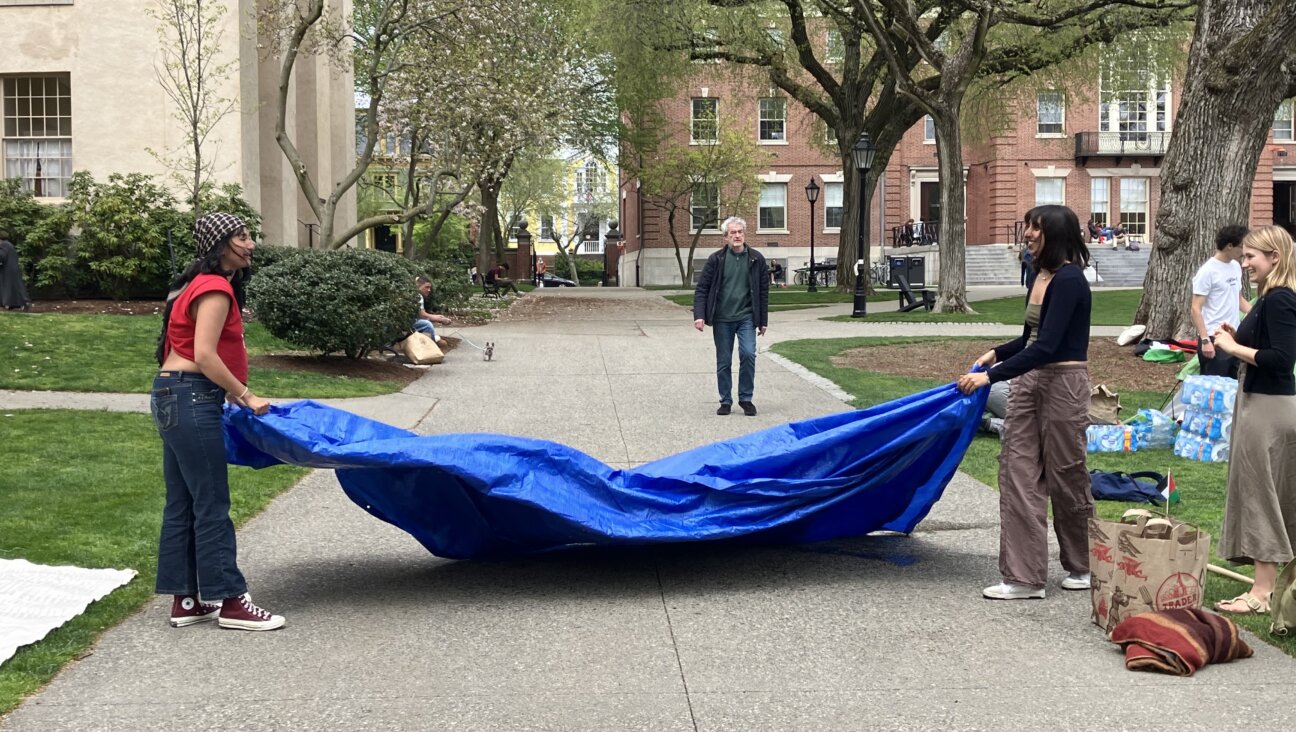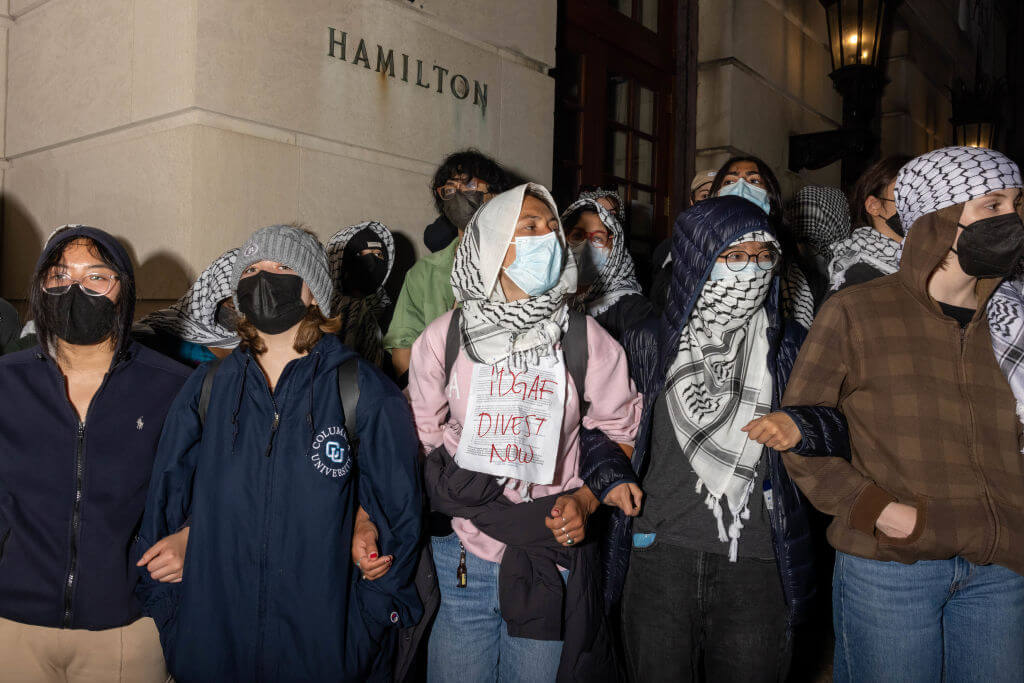What to know as Columbia U president Nemat Shafik testifies to Congress about antisemitism on her campus
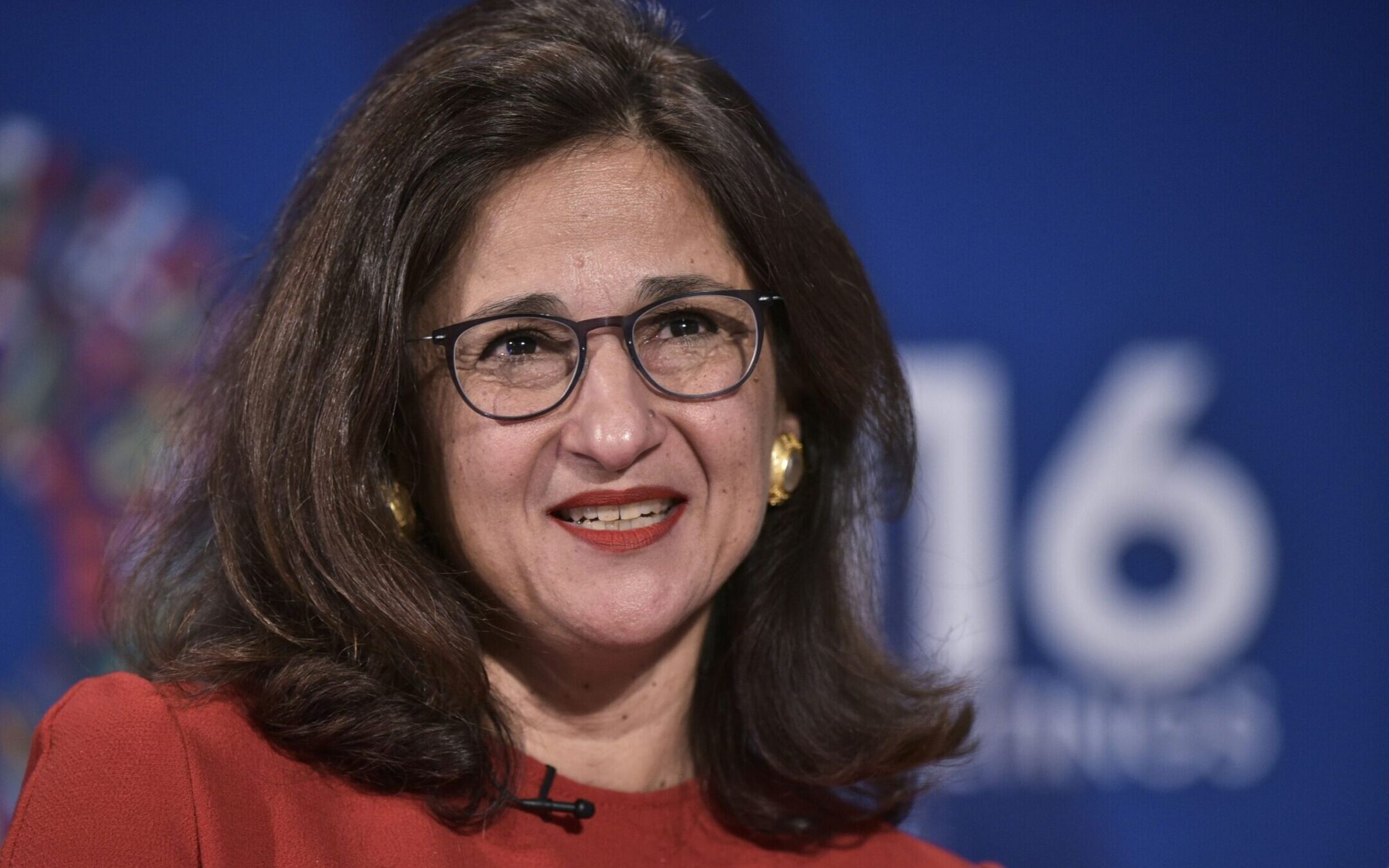
Nemat Shafik, then Bank of England deputy governor, speaks during a discussion during the 2016 International Monetary Fund, World Bank spring meetings, April 14, 2016 in Washington, D.C. Mandel Ngan/AFP via Getty Images)
(JTA) — The hearing in Congress on Dec. 5 could hardly have been more consequential: Two of the three Ivy League university presidents who testified about antisemitism on their campuses soon resigned, while their leading interrogator, Republican Rep. Elise Stefanik, morphed into an unlikely hero for American Jews, including many who tend to lean liberal.
Now, the congressional panel investigating antisemitism on college campuses is, for the first time, reconvening to grill another college president about what’s been happening at her school amid protests over the Israel-Hamas war. They have subpoenaed Nemat Shafik, president of Columbia University, which has been a hotbed of tensions since the war’s start with Hamas’ attack on Israel on Oct. 7.
Shafik, an Egyptian-born economist who goes by the first name Minouche, had only been in charge of the Ivy League university in New York City for three days at the time. Since, she has navigated thorny questions about who can protest, and how, in a setting that is devoted to the contesting of ideas while also seeking to assure Jewish students that the campus is safe for them.
Here’s what to know about Shafik, what has happened at Columbia and what to look for during Wednesday’s hearing.
Shafik has previously worked at the International Monetary Fund and World Bank. Her track record means she has more, and recent, experience in public diplomacy than the presidents of Harvard University and the University of Pennsylvania, both career higher education administrators, when they stumbled before the panel in December. At the same time, Shafik cautioned in an op-ed in the Wall Street Journal on Tuesday, “It is essential to remember that universities and their presidents aren’t politicians.”
Shafik also has the advantage of going second and has already gotten ahead of the question that tripped up the other university presidents: whether calls for the genocide of Jews violate their schools’ codes of conduct. In the Wall Street Journal op-ed, titled “What I Plan to Tell Congress Tomorrow,” Shafik wrote that calling for genocide “has no place in a university community. Such words are outside the bounds of legitimate debate and unimaginably harmful.” The other presidents declined to offer a clear answer to the question, saying that their responses would depend on “context.”
But Shafik did not spell out a position on one of the most divisive phrases associated with pro-Palestinian protests, “From the river to the sea, Palestine will be free.” Many critics of the phrase argue that it is antisemitic because it amounts to a call for the destruction of Israel; 70 Democratic lawmakers explicitly called it “a rallying cry … for the genocide of the Jewish people” in advance of a Republican-led congressional vote to censure Rep. Ilhan Omar for using the first half of the phrase. We can expect to see Shafik asked for details here.
Under Shafik’s leadership, Columbia has taken steps to blunt the most disruptive protests. It has defined a limited space for protest and penalized students who rally outside it. Two student groups that have led pro-Palestinian protests, Students for Justice in Palestine and Jewish Voice for Peace, were suspended in November for what the school said were violations of protest rules; they remain suspended at present. The university also frequently closes its urban campus to outsiders when disruptive protests are anticipated, including when thousands of activists descended on the campus to protest the treatment of the pro-Palestinian groups. And this month, it suspended four students who participated in a “Resistance 101” event that praised Hamas.
After early incidents in which a swastika was found on campus and a Jewish pro-Israel student was allegedly assaulted, Columbia has also taken active steps to address antisemitism on campus. Shafik convened an antisemitism task force after the war began, and last month, the task force released its first report, concluding that Jewish students on campus feel “isolation and pain” and that the university was not consistently enforcing rules barring unauthorized protests. The task force’s chair, David Schizer, is a law professor and former CEO of the American Jewish Joint Distribution Committee who will also be testifying; expect to hear him asked about the committee’s work and conclusions.
Not everyone on campus is satisfied with the university’s efforts to constrain protests and make Jewish students feel safe. In addition to those who argue that the limits on protest inappropriately curtail free speech, one Jewish professor in particular has emerged as a leading figure criticizing universities for permitting anti-Israel sentiment to flourish and bleed into antisemitism. Shai Davidai, an Israeli who teaches in Columbia’s business school, broke into public view just weeks after Oct. 7, when a video of an impassioned speech he gave denouncing Columbia and saying that its Jewish students are not safe went viral. He maintains a national audience and continues to sound the alarm about what is happening on campus, giving potential fodder to those at the hearing who may want to embarrass the school.
Shafik appears prepared not just to defend herself against aggressive questioning but to present her own views about how to balance free speech and student safety on college campuses, a tradeoff at the heart of contemporary culture wars surrounding higher education. In her Wall Street Journal op-ed, she outlines four lessons she has learned since Oct. 7, writing, “My own view is that official university statements should be limited to issues that speak directly to life on campus. The university should return to its core mission of fostering a range of perspectives and the scholarship, discoveries and good citizenship that flow from it. At the same time, students and faculty should feel unconstrained in developing their own opinions. … we should become models for how people grow and thrive when they live side by side with others who are different.”
This is not the first time Columbia has been in the spotlight for allegations of campus antisemitism. A controversy over the treatment of pro-Israel students on the campus two decades ago made national headlines and brought Bari Weiss, then a student activist, to prominence; Weiss’ Free Press publication has advanced the antisemitism case against higher education since Oct. 7 Years later, Iranian President Mahmoud Ahmedinejad, a Holocaust denier, spoke on campus. In the years since the school, which has a large Jewish population including students from Israel, has been the site of ongoing protest surrounding Israel.
This article originally appeared on JTA.org.

I hope you appreciated this article. Before you go, I’d like to ask you to please support the Forward’s award-winning journalism this Passover.
In this age of misinformation, our work is needed like never before. We report on the news that matters most to American Jews, driven by truth, not ideology.
At a time when newsrooms are closing or cutting back, the Forward has removed its paywall. That means for the first time in our 126-year history, Forward journalism is free to everyone, everywhere. With an ongoing war, rising antisemitism, and a flood of disinformation that may affect the upcoming election, we believe that free and open access to Jewish journalism is imperative.
Readers like you make it all possible. Today is the last day of our Passover Pledge Drive and we still need you to step up and make a gift to sustain our trustworthy, independent journalism.
Make a gift of any size and become a Forward member today. You’ll support our mission to tell the American Jewish story fully and fairly.
— Rachel Fishman Feddersen, Publisher and CEO
Join our mission to tell the Jewish story fully and fairly.
Today is the last day to contribute.







